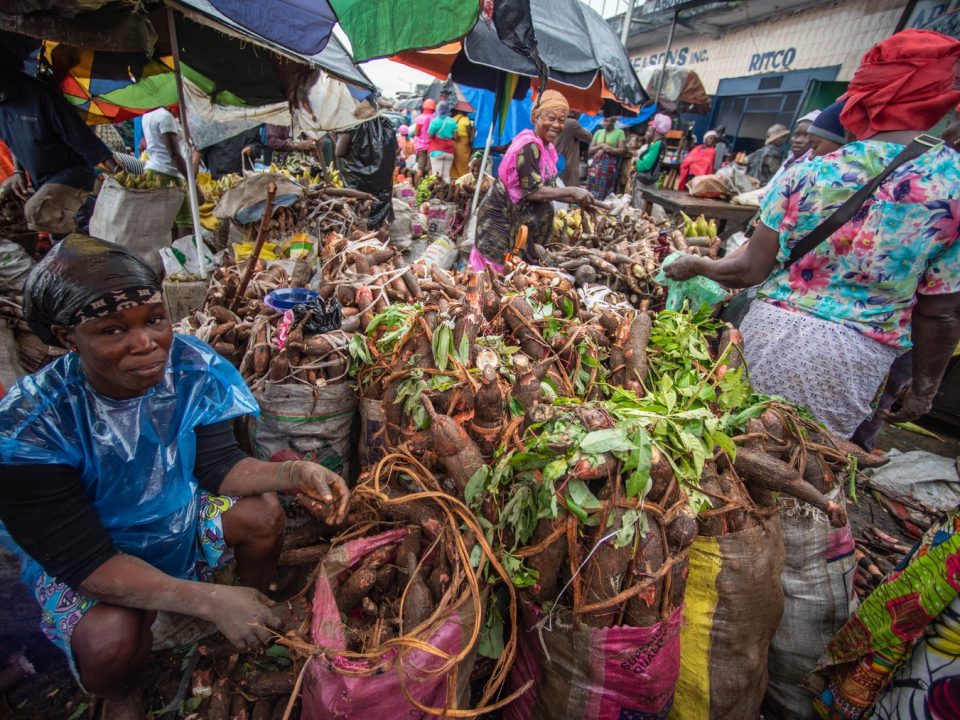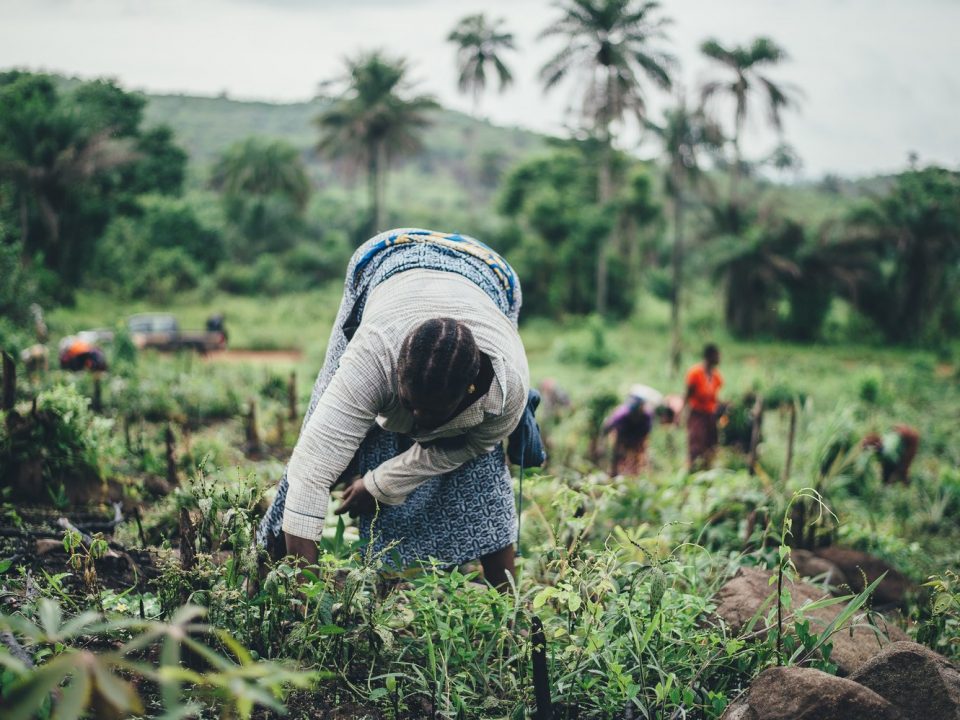
Ghana’s COCOBOD: state-dominated market governance suited to large-scale, bulk cocoa trade – not possible for Liberia
January 17, 2024Meet Our Team
January 18, 2024Intentional investment in agricultural education is vital to the success of the sector
In Liberia, farmers have limited access to agricultural information and training. Commercial actors have struggled to turn advisory services into a commercially viable business model. Meanwhile, training is often delivered by donor-funded initiatives that, inevitably, end.
Recognizing the important, missed opportunity to better equip Liberia’s current and future farmers with strong agricultural education and skills, Liberia International Christian College (LICC) Agricultural Research Center (ARC) recently launched a new agricultural short course with support from GROW Liberia and online advisory offerings that build practical agronomic capacity amongst agro-dealers and farmers. There are currently 26 students enrolled in the 8 week short course with an expected graduation date of December 11th, 2021.
Anna Mae Glenn, a professor with Hope in the Harvest Mission International, oversees LICC’s new short course on General Agronomic Practices. She describes the importance of quality agricultural education, limitations of current programs in Liberia, and what students are expected to gain from their experience with LICC.
What makes quality agricultural education important?
I have found that most of the agricultural education in Liberia is either 100% practical or 100% theoretical. Having a quality agricultural education program incorporates both practical and theory. It also seeks to inspire and build a passion in the students. This requires passionate and skilled educators, along with creativity and access to some basic resources. Without intentional investment in the agricultural sector and developing young leaders within this sector, agriculture will continue to be seen as the “poor person’s work” rather than the noble and dignified place that it deserves as the backbone of any nation. There is so much potential for agriculture in Liberia.
What are some limitations of current programs in Liberia?
Many teachers have never had hands-on practical education modeled for them so it’s hard for them to demonstrate and incorporate this into the classroom. They grew up in schools that prioritized memorizing and lecture – so to develop educational activities that can be incorporated into lessons is a skill that has to be intentionally developed through teacher trainings over time.
In absence of experience in practical education, many teachers revert to what they know which is highly technical PowerPoints. These lectures are often at Graduate degree levels rather than farmer levels. I’ve seen improvements with this at LICC over the last 6 years as we’ve worked to train teachers and help them figure out how to make their lessons more applicable.
Additionally, farmers are so used to NGO’s coming to them and either giving information away for free or paying them to sit for lectures (sitting fees), that when educational programs such as those at LICC are offered, not all will realize the benefit and take advantage of it, which is sad.
How have students been performing so far and what are they expected to take away?
The students have loved the modules and are very engaged and eager to participate when it comes to the practical work. I still have their final tests to grade, and we won’t be able to follow up with them on their farms to see what they’ve implemented for a few more months, but we plan to do so.
This course was designed to help students gain practical hands-on agricultural skills backed up by solid theoretical knowledge that will help lay the foundation for them to not only implement new practices, but also problem solve on their farms. This course was designed for smallholder farmers, but we have a number of people attending who are businessmen or career people in other sectors but have family land that they want to develop in their spare time.
This course is also meant to just be the start of their education, to get their feet wet in all that is available out there to learn. We encourage them that “LICC is their home” and they should come back anytime they have questions or need soil testing or disease analysis done. We also encourage them to come and do “internships” in various areas of the farm that they might want to gain more hands-on practical experience. The internships can be anywhere from 2 days to 2 weeks. They pay for their own feeding and lodging and are able to work side-by-side on the LICC farm with our employees, which really is one of the best ways to help them solidify all that they’ve learned in the certificate course.
What new skills will they have acquired after this?
The course covers:
- Transplanting
- Nursery skills
- Composting
- Natural pesticide making and application
- Disease identification in plants
- Pesticide label reading
- Animal medicine label reading
- Farm records and management
- Business plan development
- Solar drying of fruits and vegetables
- Soil health analysis
- Health/wellness checks on all animals
- Disease identification & treatment in all animals
- Nutrition and feed making for all animals
- Building and maintaining fish bonds
- Building and maintaining beehives
- Cash crop spacing calculations
Will there be more opportunities like this in the future?
Yes, we plan on doing the certificate course here at LICC either once or twice a year, depending on demand and schedules. Additionally, we plan to use the lesson plans, activities, PowerPoints, and videos that were developed for this course in future 1-2 workshops on specific topics. For example, we are planning to the take the poultry lesson plans and use those to conduct a 1-day poultry workshop for local farmers and cooperatives. We can also do the same for piggery lessons, goat lessons, vegetable lessons, etc. They can be used as is or expanded slightly to accommodate more materials and longer lessons, but the foundation is already there which is very helpful.
What are your main takeaways?
What worked well?
- Marketing was great; there was a lot of interest and people signed up early because of the discount – LICC students helped with marketing
- The lesson plans and PowerPoints were very well developed and can be used again the future for many years to come
- Our staff at LICC is very experienced in teaching practical and that went well
What will be adapted going forward?
- The schedule of Fri/Sat class was very accommodating for working people. But, we need to expand classes to 4 hours a day (with a 20-minute break at the 2-hour mark) to better cover the materials. Time management was an issue in the classroom – students had many questions and it was hard to get through PowerPoints.
- Classroom management is hard for such a short class. It is difficult to manage “bad” behavior when there are no grades or point systems assigned that can be used to encourage better behavior.
- We need to charge a little more than $50 to better cover our costs and compensate teachers
- There are 1-2 additional topics that could be added (Rabbits, extension, etc.)
About GROW Liberia
GROW is an agribusiness and investment advisory agency that partners with businesses, investors, associations and government agencies to accelerate inclusive economic returns within high-growth industries in Liberia.



GROW Liberia © 2021 All rights reserved



